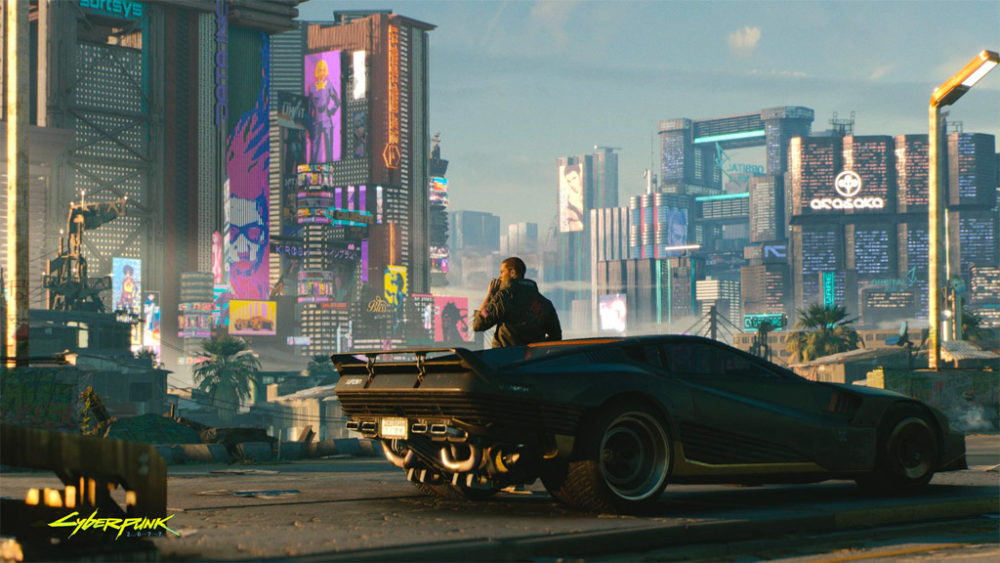
Cyberpunk 2077 has a lot in common with Night City, the neon-lit metropolis in which the game takes place. There’s a lot of good, a lot of bad, and you’ll repeatedly be asked to put aside any ethical holdups you may have if you want to have a good time.
CD Projekt Red’s follow up to its massive success The Witcher 3 is an epic journey of anticipation, despair, and madness – and that’s just a description of the fans who have been waiting for The Game That Would Save Gaming since CD Projekt Red (CDPR) dropped the first teaser trailer eight whole years ago, in May 2012. That was followed by hints in 2013, a second trailer in 2018, and a gameplay preview at E3 in 2019. Then, a release date that was pushed, pushed, and pushed again meant that by the game’s release this December, fans were frothing at the mouth to finally get their chance to play.
But trouble was brewing on the horizon. Early reviews reported a buggy and glitch-filled experience, and the developers declined to give review access to the game as they rushed to prepare a day-one patch for the release. And every day, a new report came out that raised a fresh red flag.
After promising they would avoid demanding “crunch,” a gaming industry term for requiring development teams to put in egregious hours of overtime to finish a game on schedule, Bloomberg’s Jason Schreier reported that CDPR would mandate six-day work weeks for their teams starting in September. As review scores came back looking less than rosy, CDPR announced they would stop tying Christmas bonuses to an aggregate review score above 90, a move that — if you don’t look too closely at it — sounds positive. But then, when you read it a couple of times, your brain starts to get really hot and your eyes start to roll back into your head. Then, when the game did finally release on consoles, it was so deeply broken on the Playstation 4 and Xbox One — systems it was supposedly designed for — that the Cyberpunk team offered refunds for obscuring the state of the game on console, a blow to the 8 million people who had pre-ordered it.
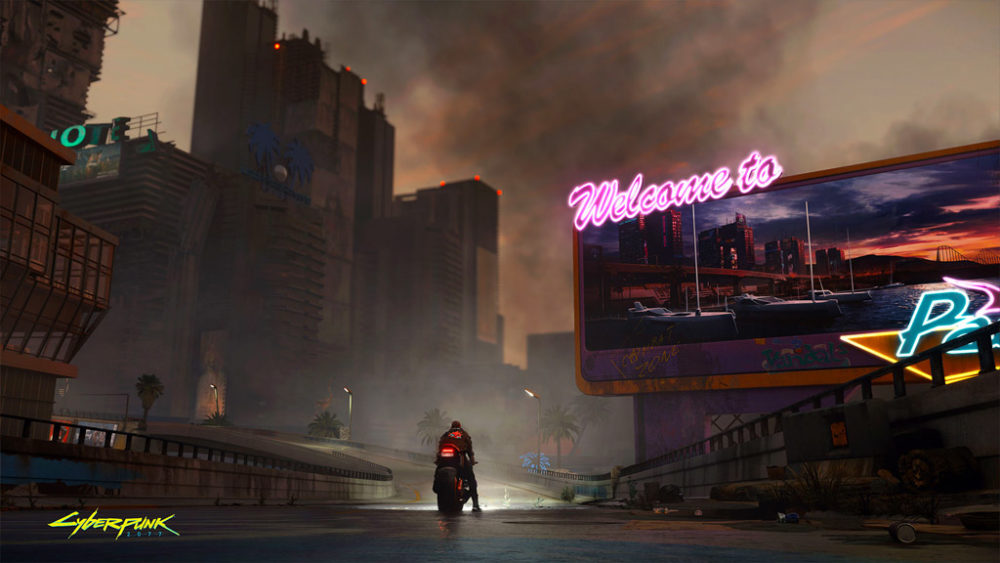
So when I got my copy of the game — which was purchased on release day, as advanced console copies were scarcely made available — and the accompanying 18-gigabyte “Day Zero” bugfix patch, I felt an abnormal amount of pressure. It’s hard to play Cyberpunk 2077 (and hard to review it) without thinking about all of the baggage that comes with it. Cyberpunk slots pretty cleanly into a class of games like The Elder Scrolls, Fallout, or Grand Theft Auto: games that ask you to understand that a steady diet of glitches is a fair tradeoff for access to a massive, living, breathing world full of exploration and memorable characters. And no doubt, those games were made with crunching and employee pressure too. A dirty not-so-secret of the industry? Most games are.
But Cyberpunk feels different, maybe because of the anticipation leading up to the game’s release, or how public the internal struggles have been. Every time I encountered a head-turning glitch (there were many) and every time my game would crash out of nowhere (which was often), my mind would turn to the teams that had busted their backs to get a game out by the holidays that was eight years in the making and technically eight months late but still feels six months early. It made the very act of playing the game a sort of melancholic, tinged experience — which is extra sad, because when Cyberpunk fires on all cylinders, it’s an absolute rush.
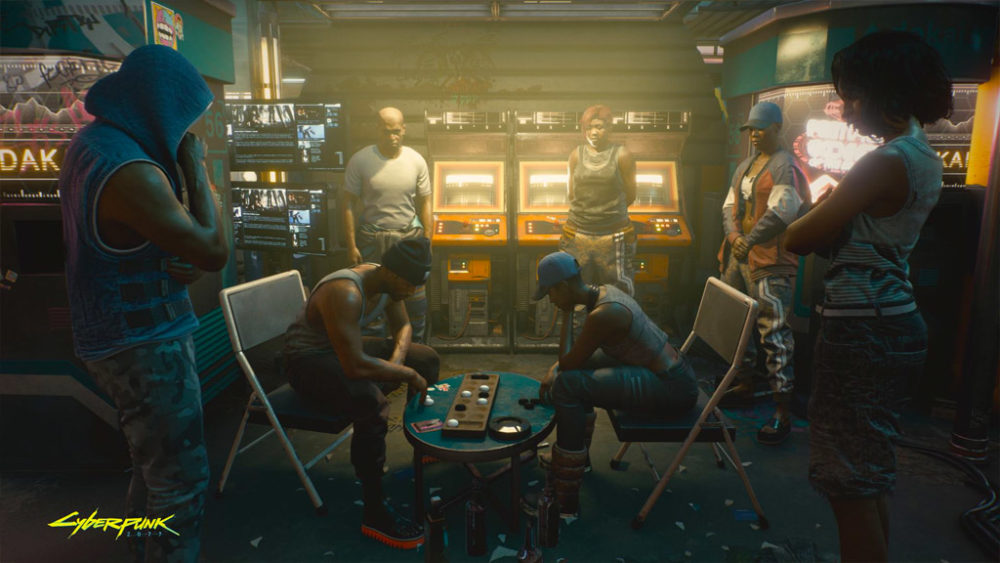
I suppose now that I’m 600 words into this review, I should talk a little about the game itself. Cyberpunk 2077 follows the story of V, a hard-edged mercenary eking out a living in the sprawling future metropolis of Night City. The main storyline is somewhat quick. If you play right through it, it shouldn’t take much more than 15 hours, but it is satisfyingly twisty-turny, featuring some top-notch voice acting and a truly memorable turn from Keanu Reeves, who is clearly having a very good time.
The real appeal is exploring the truly massive expanse of Night City. CDPR has created a vast and vibrant world that hides a dizzying array of side missions and characters in its nooks and crannies. The experience of coming out of your apartment at the start of the game and walking out into a cityscape, with gleaming skyscrapers towering over you and hundreds of NPCs going about their lives — eating at food stalls, sparring in a boxing ring, making shady back-alley deals — is an undeniably powerful next-gen game experience. Move too close, and the cracks inevitably begin to show. I spent a good three minutes watching an NPC take endless bites out of a never-ending hamburger. But moving around the city, drinking in its varied locales, and listening to the passersby speaking an atlas worth of languages, was a memorable experience that held its fun hours deep into the game.
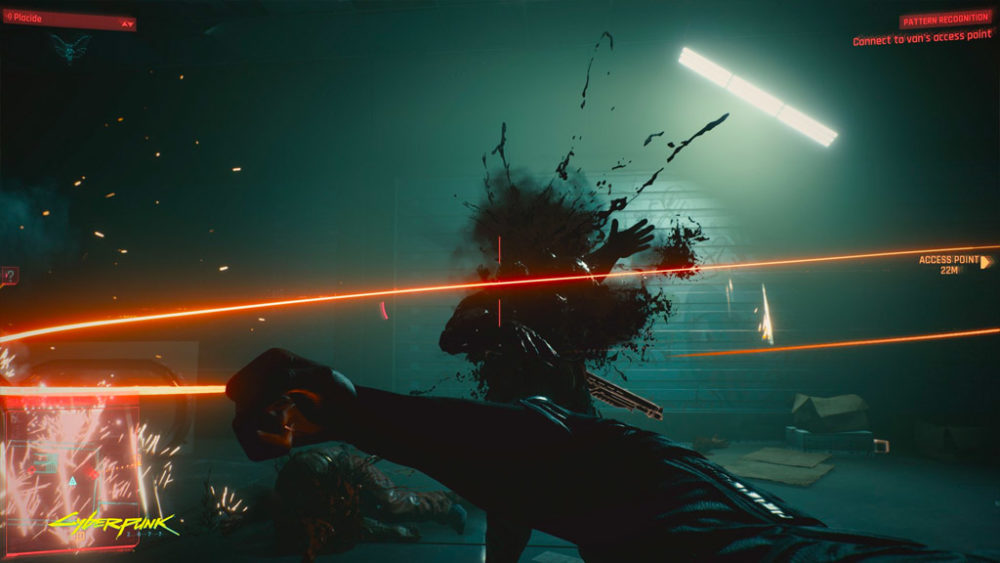
The core mechanics of the gameplay should be familiar to anyone who has dabbled in RPGs. Combat can be an art of stealthily using cybernetic hacks to disable your enemy’s vision before hiding their body in a dumpster, or rampaging through a level with a series of upgradable and customizable guns and swords. Either method grants you points you can use to level up perks and attributes that increase your damage (letting you punch harder and hack more) as well as street cred that unlocks further missions and better items as you progress. The combat can be repetitive — dungeon-crawling is dungeon-crawling, whether you’re crawling through the basement of a cyber psycho’s murder house or, you know, a dungeon. But the gameplay is clean and well-handled, and whether you choose to move through the world quietly or guns-ablazing, it feels satisfying.
That being said, as you progress through the game, an odd sense starts to build up, a sort of displacement of tone and time. Cyberpunk is based on a tabletop board game originally released in 1988, and it oddly feels that way at times. For a game released in 2020 and taking place in 2077, there’s an unshakable sensation of datedness. It permeates the game, starting with the character creation screen.
Much was made in pre-release hype about the huge range of Cyberpunk’s character creation, particularly around the sliding scales for certain body parts. But the creator itself is oddly, borderline-insultingly, limited: No matter what you do to your character’s hair, eyes, or, yes, genitalia, it all sits on the same unchangeable, fit body type. And while the game offers you the option to change your pronouns, it only does so on the basis of whether you speak with a male- or female-presenting voice and offers no option for non-binary characters — a feeble stab at representation that comes off more insulting than inspiring (Polygon writer Carolyn Petit has more on this in her review, which is very worth reading.).
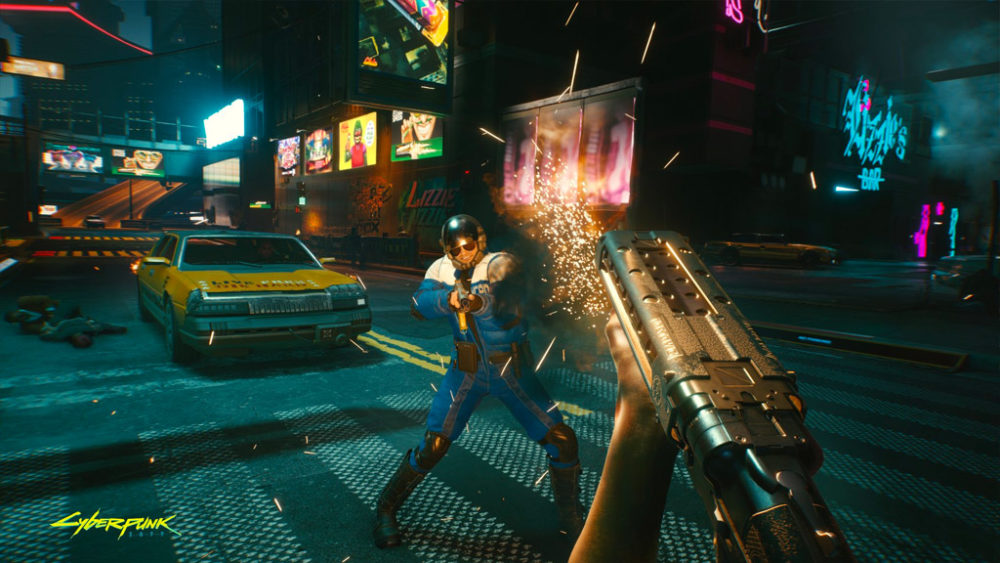
The game itself suffers from tropes that could have been left in 1988 or, at the very least, in 2020. The undercurrent of cynicism running through the game — dirty cops, evil corporations, sex and drugs and rock and roll — fits in the world but also limits it. The game has such a promising world to explore and so much room to do so, that the faint whiff of must emanating from its storylines and speeches is a total mood killer. I understand that there’s a place for cynicism and that Cyberpunk is not meant to be an uplifting vision of the future. But at times, the game left me feeling as hard and bitter as the characters in it. I found myself yearning for the moments in the game that front-end human connection, such as a memorial service or a drink with an old friend. Those hints of light in a dark world were welcome respites.
That, in the end, feels indicative of the Cyberpunk 2077 experience as a whole: A game that often spends too much time hearkening backward when it held so much potential to carry the industry forward. In all honesty, I think that the average person who knows nothing about the story behind this game and the controversies swirling around it would truly enjoy Cyberpunk. Once the patches roll in and the glitches are ironed out, it will be a deserved hit: a game that has multiple avenues to take your breath away and is easy to get lost in. But it’s those very controversies that make it hard to recommend. The only way to stop these things from happening, to move the industry forward on equity, workers’ rights, and representation, is to stop rewarding the companies that flout these standards. Cyberpunk is worth experiencing and will be even more so in due time. But proceed informed, or read this article about the work culture at the company that made Hades, one of my favorite games of 2020, and dream of what could be.
